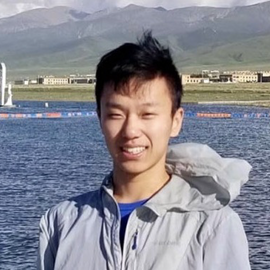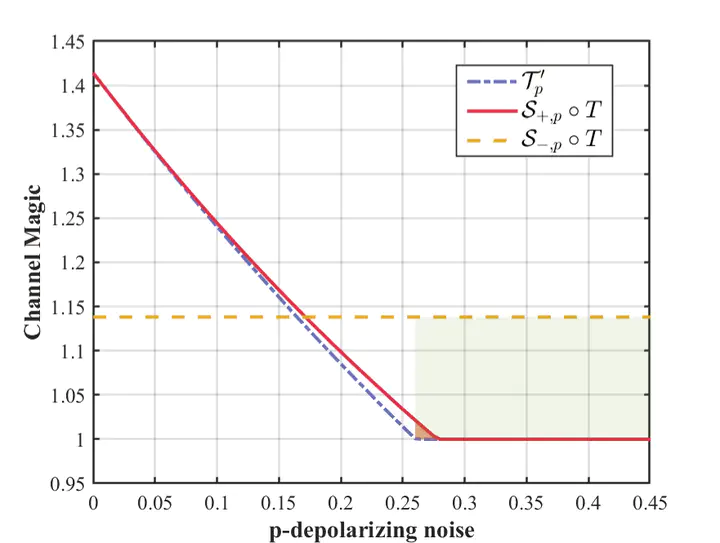Abstract
In quantum computing, the nonstabilizerness of quantum operations is crucial for understanding and quantifying quantum speedups. In this study, we explore the phenomena of nonstabilizerness of the quantum SWITCH, a novel structure that allows quantum states to pass through operations in a superposition of different orders, outperforming traditional circuits in numerous tasks. To assess its nonstabilizerness, we propose the magic resource capacity of a quantum process to quantitatively examine the nonstabilizerness of general quantum transformations. We find that the completely stabilizer-preserving operations, which cannot generate magic states under standard conditions, can be transformed to do so when processed by the quantum SWITCH. Furthermore, when considering the impact of noise, although the nonstabilizerness of each path may be annihilated, their superposition could still preserve the overall nonstabilizerness. These findings reveal the unique properties of the quantum SWITCH and open avenues in research on nonstabilizer resources of general quantum architecture.
Publication
Physical Review A

Research Associate
I obtained my BS in Fundamental Science in Physics and Mathematics from Tsinghua University. I obtained my PhD degree in Computer Science from the University of Hong Kong. My research interests include quantum information theory, quantum supermaps and quantum machine learning.

PhD Student (2023)
I obtained my BS in Applied Mathematics from China Agricultural University under the supervision of Prof. Zhencai Shen. I obtained my MS degree in Cyberspace Security from University of Chinese Academy of Sciences under the supervision of Prof. Zhenyu Huang. My research interests include quantum information theory and quantum computation.

PhD Student (2023)
I obtained my BS and MS degrees in physics from the University of Melbourne. My research interests include distributed quantum computing, quantum entanglement and quantum machine learning.

Associate Professor
Prof. Xin Wang founded the QuAIR lab at HKUST(Guangzhou) in June 2023. His research primarily focuses on better understanding the limits of information processing with quantum systems and the power of quantum artificial intelligence. Prior to establishing the QuAIR lab, Prof. Wang was a Staff Researcher at the Institute for Quantum Computing at Baidu Research, where he concentrated on quantum computing research and the development of the Baidu Quantum Platform. Notably, he spearheaded the development of Paddle Quantum, a Python library designed for quantum machine learning. From 2018 to 2019, Prof. Wang held the position of Hartree Postdoctoral Fellow at the Joint Center for Quantum Information and Computer Science (QuICS) at the University of Maryland, College Park. He earned his doctorate in quantum information from the University of Technology Sydney in 2018, under the guidance of Prof. Runyao Duan and Prof. Andreas Winter. In 2014, Prof. Wang obtained his B.S. in mathematics (with Wu Yuzhang Honor) from Sichuan University.
 Comparison between the non-stabilizerness under different settings.
Comparison between the non-stabilizerness under different settings.